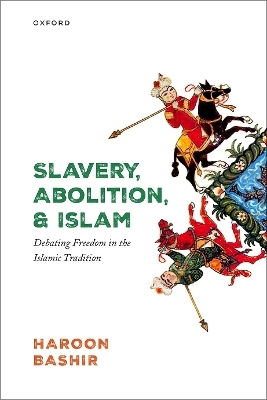
Slavery, Abolition, and Islam
Oxford University Press (Verlag)
978-0-19-287474-0 (ISBN)
Does the Qur'an promote the abolition of slavery? If so, why had the slave trade been allowed to operate across the Muslim world for over a millennium? And why had Muslim scholars not attempted to eradicate slavery previously? These were the questions that Islamic abolitionist scholars explored as they sought to challenge the slave trade throughout the nineteenth century.
The abolition of slavery remains a relatively new concept in human history and scholars from all religious traditions have attempted to navigate the religious and ethical questions raised by the historical acceptance of slavery. In this book, Haroon Bashir tells the story of how scholars promoting abolition in the name of Islam transformed the debate around Islam and slavery. The book explores how abolitionism became the hegemonic position within contemporary Islamic thought and highlights the journey behind the current consensus. Abolitionist arguments were not simply accepted, with defenders of the slave trade using the weight of historical tradition to emphasise the legitimacy of slavery. The strongly contested debates that ensued had huge ramifications for understandings of authority, tradition, and modernity within Islamic thought that are as present as they are past.
Through an exploration of these various discourses and contestations, Slavery, Abolition, and Islam highlights how both slavery and abolition were historically challenged within the Islamic context and demonstrates how those debates continue to impact contemporary discussions. In doing so, the book also explores broader themes of religious traditions, continuity, and transformation.
Dr Haroon Bashir is Senior Lecturer in Islamic Studies at the Markfield Institute of Higher Education. Since 2021, Dr Bashir also serves as the Director of the Markfield Centre for Contemporary Islam. His research focuses on Islam's conversation with modernity, contemporary Islamic thought, and Quranic interpretation.
Preface
Acknowledgements
Note on Transliteration and Translation
Introduction
1: Slavery in Classical Exegesis
2: Persons, Property and Liminal Spaces: The Slave in Islamic Law
3: Situating Islamic Reform
4: Sayyid Ahmad Khan and 'Quranic Abolition'
5: Muḥammad 'Abduh, Rashīd Riḍā and 'Quranic Gradualism'
6: What is the Islamic Position on Abolition? Hermeneutical Paradigms and Interpretive Communities
Epilogue: The Future of 'Islamic Abolitionism'
Glossary of Terms
Chronology of Key Figures/Scholars
Bibliography
| Erscheinungsdatum | 31.12.2024 |
|---|---|
| Verlagsort | Oxford |
| Sprache | englisch |
| Maße | 166 x 242 mm |
| Gewicht | 490 g |
| Themenwelt | Geschichte ► Teilgebiete der Geschichte ► Religionsgeschichte |
| Geisteswissenschaften ► Religion / Theologie ► Islam | |
| ISBN-10 | 0-19-287474-8 / 0192874748 |
| ISBN-13 | 978-0-19-287474-0 / 9780192874740 |
| Zustand | Neuware |
| Informationen gemäß Produktsicherheitsverordnung (GPSR) | |
| Haben Sie eine Frage zum Produkt? |
aus dem Bereich


